DESCRIPTION
I created Mistel, a special bombing system developed by Germany during World War II. You can choose between automatic guidance with a missile and manual guidance with Ag1 to separate and guide. The model is a Me262 / Me262 mistel with an unknown name.

OPERATION EXPLANATION
Throttle:Engine start
VTOL:Flap
Landing gear:Dropping the trolley
Ag1: position light
Ag2: Dropping the Mistel
Ag8OFF: Gyroscope OFF


HISTORY
The most successful of these used a modified Junkers Ju 88 bomber as the Mistel, with the entire nose-located crew compartment replaced by a specially designed nose filled with a large load of explosives, formed into a shaped charge. The upper component was a fighter aircraft, joined to the Mistel by struts. The combination would be flown to its target by a pilot in the fighter; then the unmanned bomber was released to hit its target and explode, leaving the fighter free to return to base. The first such composite aircraft flew in July 1943 and was promising enough to begin a programme by Luftwaffe test unit KG 200, code-named "Beethoven", eventually entering operational service.
Other Mistel composites included the Ta 154/Fw 190, Ar 234/Fi 103, Do 217K/DFS 228 and Si 204/Lippisch DM-1. Projects included the Ju 287/Me 262 and Ar 234C/Arado E.377.
This aircraft was made with the motif of the Me262 / Me262 type whose name is unknown.

Specifications
Spotlights
- Zott 4.0 years ago
General Characteristics
- Successors 1 airplane(s) +7 bonus
- Created On iOS
- Wingspan 33.8ft (10.3m)
- Length 36.6ft (11.1m)
- Height 21.2ft (6.5m)
- Empty Weight 26,656lbs (12,091kg)
- Loaded Weight 29,315lbs (13,297kg)
Performance
- Power/Weight Ratio 0.459
- Wing Loading 34.3lbs/ft2 (167.3kg/m2)
- Wing Area 855.7ft2 (79.5m2)
- Drag Points 12678
Parts
- Number of Parts 315
- Control Surfaces 10
- Performance Cost 1,410

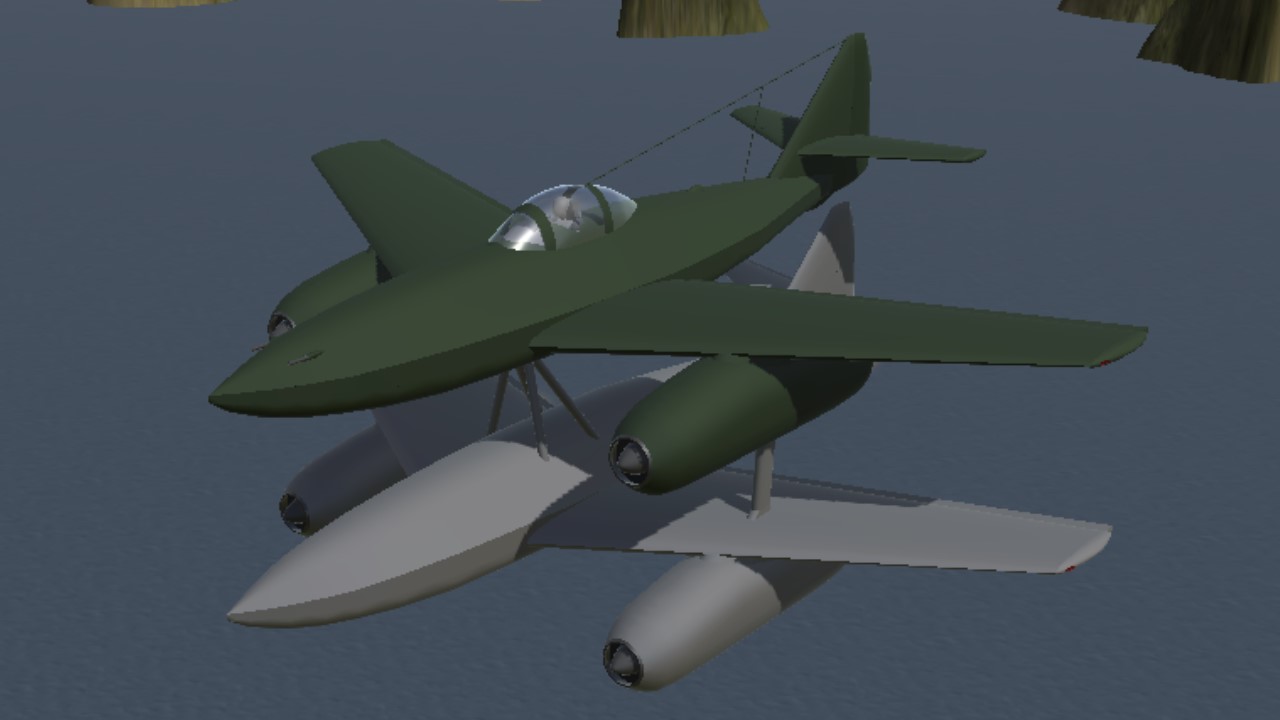
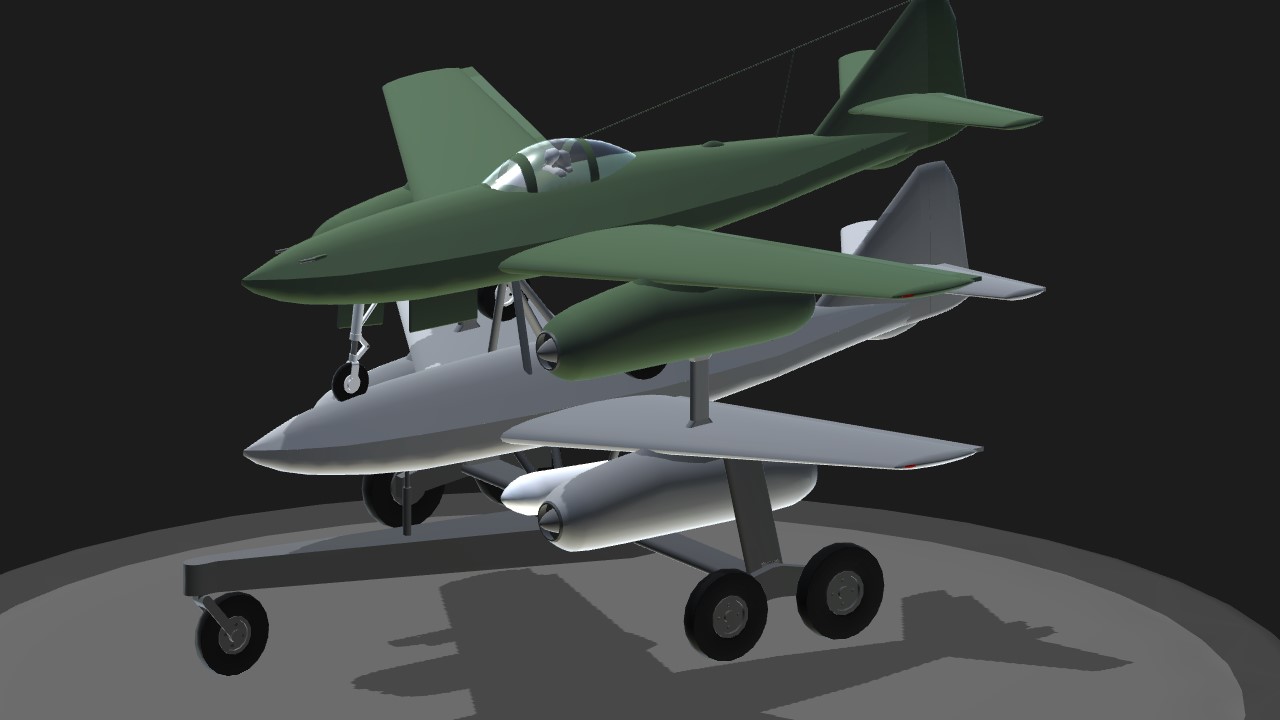
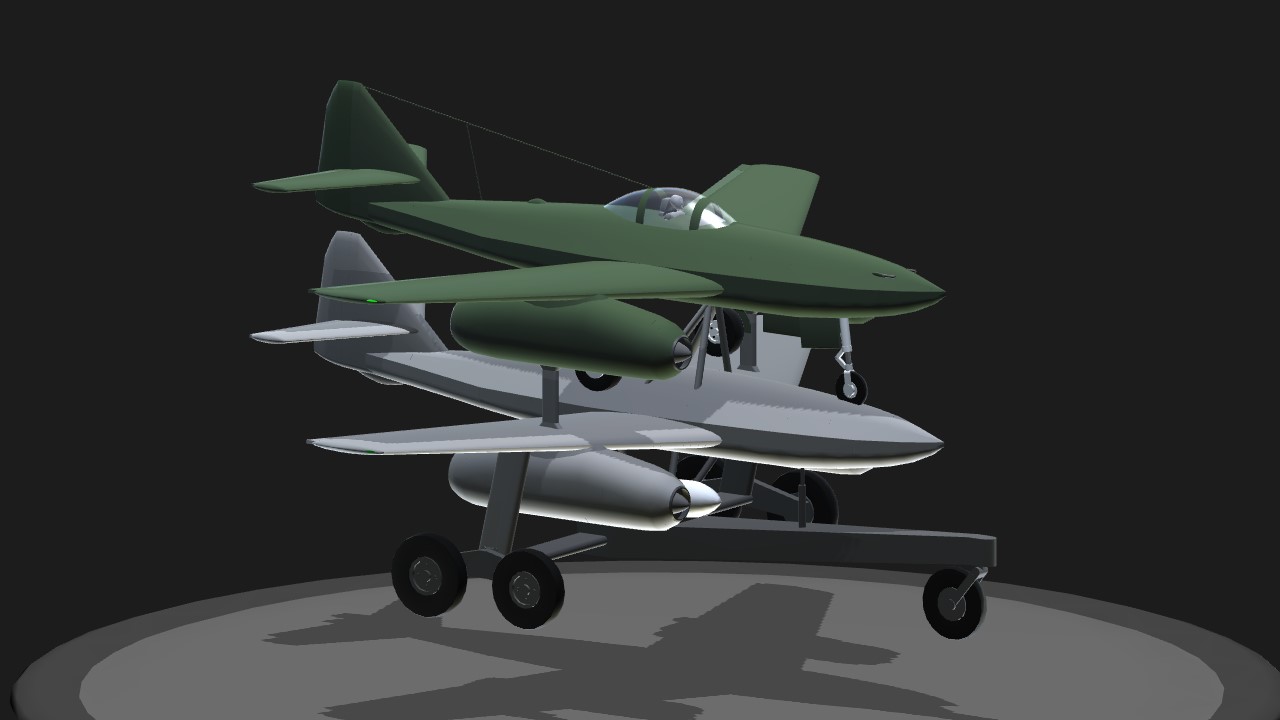
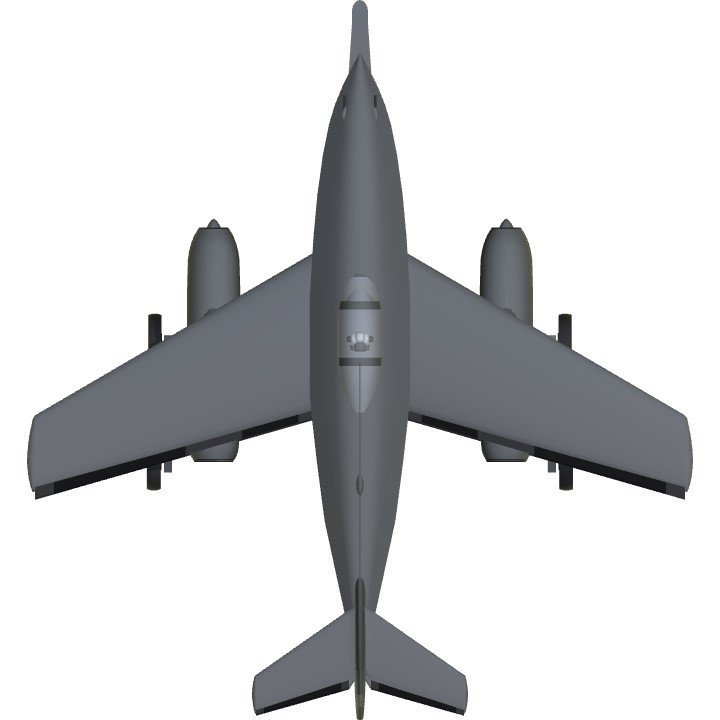
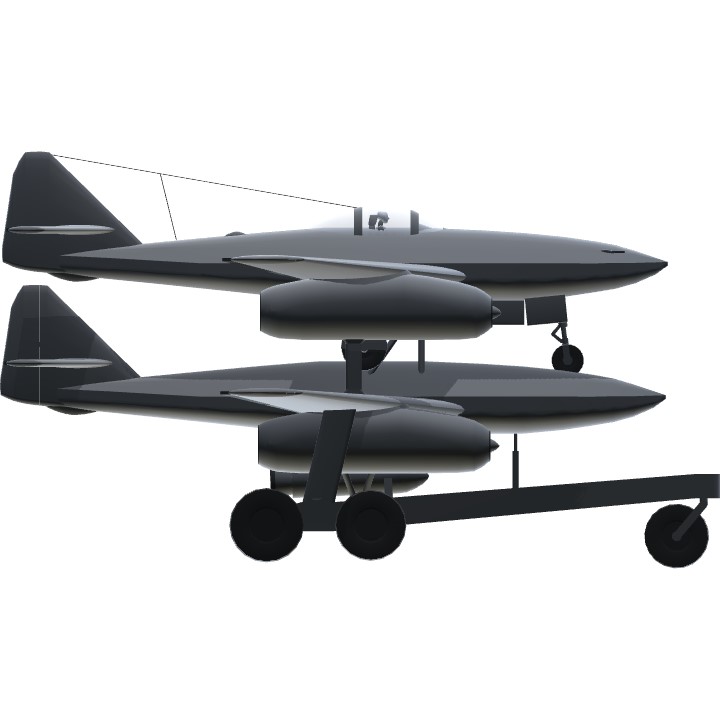
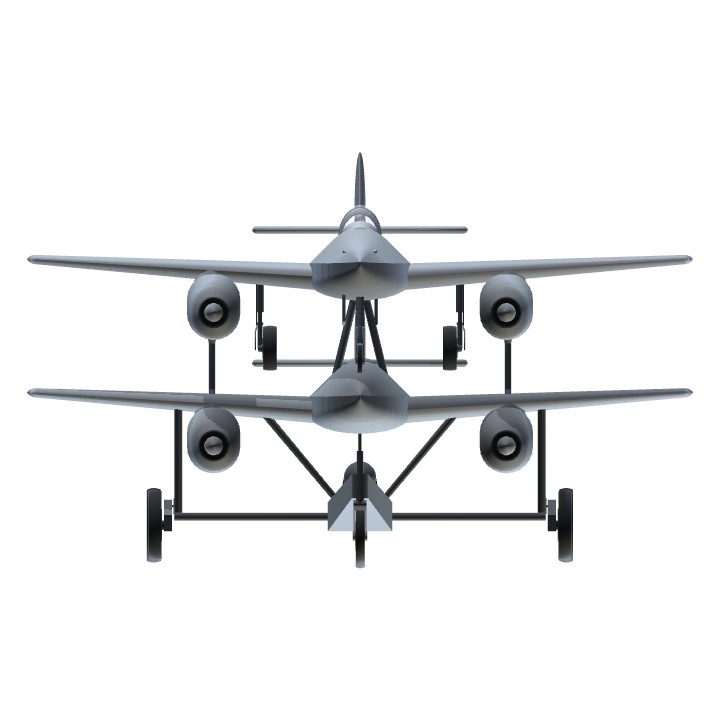
This is an amazing build
permission to take the jet and modify it?
Can you make a ver. just with the Me-262 pls?
cool
Very interesting